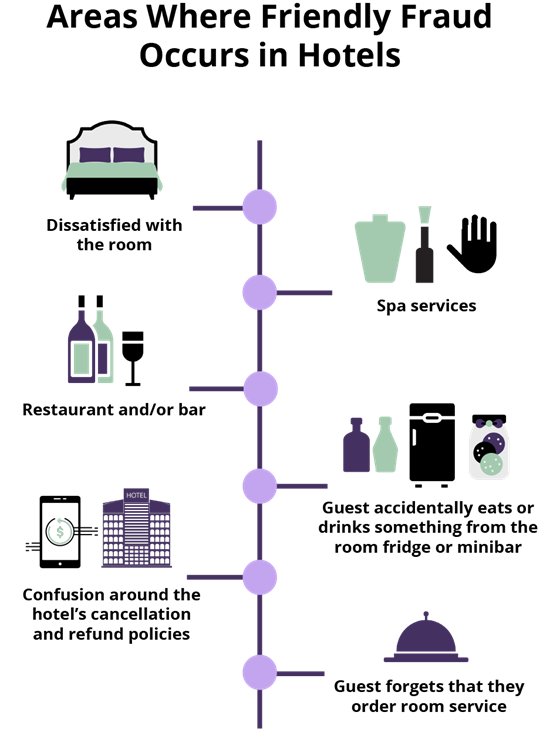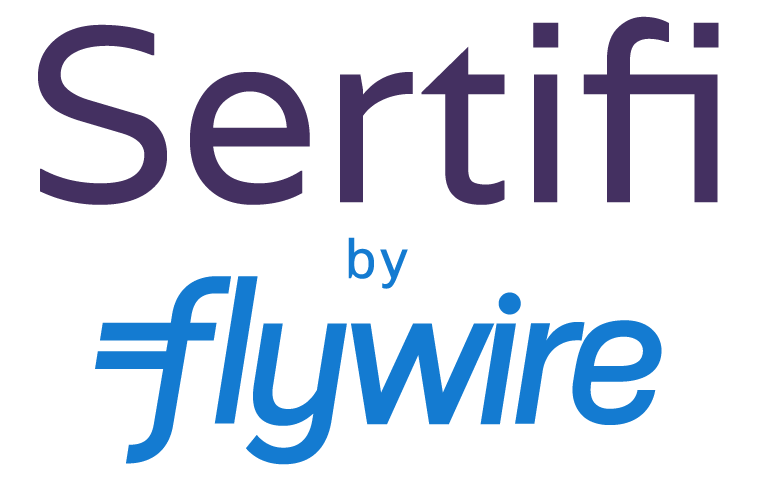Friendly Fraud and How to Prevent It at Your Hotel
Fraud is a term that you see and hear a lot, but there are different types of fraud that can confuse people because they all have their own nuances. Two types of fraud that are often used interchangeably are friendly fraud and chargeback fraud. There are distinctions between the two that are good to be aware of so that you can better protect your hotel’s bottom line while still providing a positive guest experience. The cost for each dollar of fraud loss is $2.94, and that involves several different factors including labor/investigation, expenses related to chargebacks, IT/software security, etc. No matter what industry you’re in, fraudulent activities are costly for a business.
Let’s talk about friendly fraud first. So, what is it?
Friendly fraud is when a person unknowingly commits fraud by asking for a chargeback from their credit card company or bank after a transaction has taken place. It’s generally associated with people who don’t realize they purchased something or that they didn’t understand what they were agreeing to pay for.
Then what’s chargeback fraud?
Chargeback fraud is when a person knowingly purchases a product or service and intentionally files a chargeback through the credit card company with the goal of keeping the product or service and receiving a refund.
Now that you know the subtle differences between friendly fraud and chargeback fraud, let’s clear up some misconceptions since there can be overlap between the two.
- The person committing friendly fraud is the actual card owner. In the case of chargeback fraud, it can go either way: It can be a legitimate card owner knowingly requesting a chargeback, or it can be a criminal that stole the card.
- It’s possible for a person to commit both friendly fraud and chargeback fraud.
- Friendly fraud is challenging to prove because it’s attributed to confusion or forgetfulness.
In this post, let’s go with the assumption that the person doesn’t plan to commit friendly fraud. They’ve already booked their accommodations, plan to stay at your property, and have no intention of asking for a chargeback.

Even though friendly fraud is hard to prove, that doesn’t mean it’s impossible. The trick to identifying friendly fraud is understanding your guests’ habits, interactions, and intentions, and to have procedures in place to limit the likelihood of a chargeback, regardless if it’s intentional or not. It really comes down to building a rapport and creating a memorable guest experience.
Here are five ways you can protect your hotel against friendly fraud.
1. Have a clear refund and cancellation policy in place.
One of the reasons friendly fraud occurs is because the person didn’t understand the refund or cancellation policy. Take the time to revise your existing policy to ensure your hotel’s policies are clear and concise.
Here are four places to emphasize your hotel’s policies:
- Your hotel’s website
- Third-party booking sites
- Your hotel’s social media channels
- Confirmation emails
Consider keeping each section bold and spaced so that it’s easy to read. You can even bold the most important pieces of information to ensure it catches the guest’s eye.
When the Guest Services staff are taking reservations by phone, ensure that they’re trained to clearly state the policies upfront prior to booking the reservation. If a guest ends up asking for a chargeback, you can show that you had this policy in multiple areas so that there’s no confusion.
2. Use clear and recognizable billing descriptors on your credit card authorization forms and invoices.
Have you ever purchased something and the company name appearing on the credit card statement was confusing? A simple way to reduce the possibility of friendly fraud is to ensure your hotel’s full name is properly displayed on the customer’s credit card authorization form and invoice. Use your hotel’s branding on the authorization form to help with brand recognition. Ensure the billing name is consistent throughout the payment experience and that any communications with guests includes what they should expect to see on their statements.
3. Maintain your internal notes in the guest reservation.
Most hotel Property Management Systems (PMSs) have an internal notes section in each of the reservations so that a Guest Services Agent can enter notes about a guest. If a guest makes a request or has a complaint, make sure you enter it there. Although this goes without saying, the notes should be impartial, factual, and straight to the point. Avoid using vague and subjective comments about the individual. Maintain a record of the guest’s interactions so that if a chargeback does occur, you can use this section as evidence to build a solid case.
Another piece of information to add is why the guest is staying at the property. It helps the team to better understand and respond to the guest’s needs. Encourage the Guest Services team to use this with all guests. This helps not only the person helping the guest, but it gives the entire team insight into the person’s interactions. While it might seem unnecessary or tedious, it’s a powerful way to reduce the possibility of friendly fraud and helps to create a memorable and personalized experience.
4. Empower the Guest Services team to handle guest complaints.
The Guest Services team are the first people that your guests interact with when they arrive at the hotel. This team also addresses complaints and questions when they occur. They need to be trained to handle any guest situation. Since they’re the forward-facing representatives of your hotel and brand, you also need to educate them on unusual patterns and behaviors. When a guest has a complaint or request, make sure your team has an escalation plan that they can refer to.
Give the Guest Services team the authority to utilize the hotel’s point-based program or other offered services through gift cards or coupons for guest compensation. Two of the biggest hotel goals, no matter the size, are having 100% occupancy and providing a positive guest experience. Offering the individual reward points helps to build brand loyalty and is less costly to the property than giving a discounted room rate or a free night stay. Of course, depending on the seriousness of the complaint, it might not make sense to offer reward points, but empower your team to make that call. By addressing the complaint immediately, you’re reducing the chances of friendly fraud occurring.
5. Regularly touch base with the guest.
Never underestimate the impact of checking in with your guest. When you eat at your favorite restaurant, isn’t it nice when the manager or chef comes out to introduce themselves and asks how your meal is? It’s a simple gesture, but you’ll remember it the next time you eat there. It’s part of creating a memorable experience at the restaurant. The same can be said for hotels. According to a study done by Deloitte, only 62% of guests felt satisfied with being heard by their hotels. Take time to check in with your guest to find how their stay is when they’re at the property. You can ask them when you see them in the hotel lobby. There are also text messaging solutions specifically for hotels that enable teams to text their guests for feedback. By doing this, you’re giving your guest an opportunity to provide feedback. Also, follow up with them immediately when it’s something that needs to be taken care of. Put these guest check ins into your internal notes. If a chargeback does occur after the stay, you can use this as a paper trail to look at the guest’s behavior. It’s one way to determine if it’s potentially friendly fraud. More importantly, you’re also building a rapport with the guest when you actively listen to their feedback and address it in that moment.
Remember friendly fraud is associated with people genuinely forgetting that they purchased a good or service or they were confused about the refund and cancellation policy. Friendly fraud isn’t intentional, but it can become chargeback fraud.
It’s also worth noting that it’s impossible to fully eliminate friendly fraud and chargeback fraud from happening at your hotel. There will always be people that like to complain and be difficult, but you’ll encounter those people no matter what industry you’re in.
These are easy and actionable ways to reduce friendly fraud activity at your property while continuing to offer a better guest experience. Hotels should have ways to prevent fraudulent activities so that you’re protecting your property’s bottom line and reputation.
Recommended Guide
Hotel Chargebacks and Fraud Prevention Guide
Get a deeper dive on chargebacks and ways to reduce them, saving you thousands each year.
